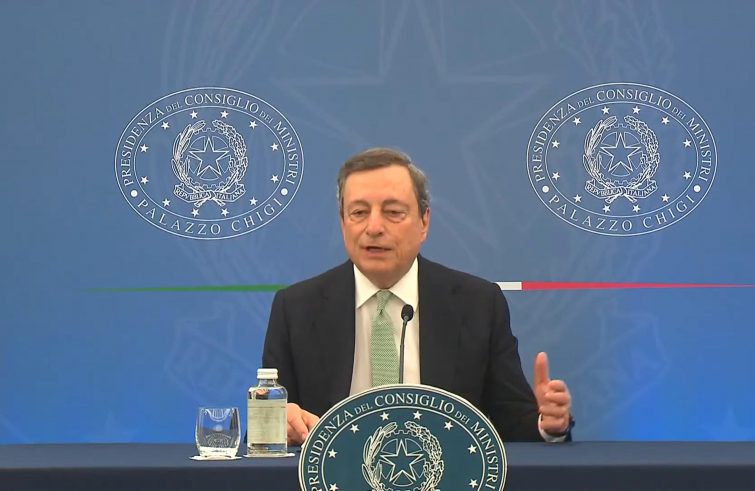
“The gravity of the situation requires us to run the risk of making attempts that might not be successful,” he said. The Council of Ministers briefed on the National Recovery and Resilience Plan – NRRP – implementation stage, but during Mario Draghi’s press conference after the meeting at Palazzo Chigi, the most prominent issue was the telephone conversation the prime minister had with Moscow.
“I called President Putin – Draghi told journalists – with the aim of enquiring whether there was something that could be done to unblock tonnes of grains that are stuck in Ukraine. The impending food crisis, which a number of African countries are already experiencing, is bound to be of exceptional proportions with devastating humanitarian repercussions.”
“A preliminary step that could be explored – he added, clarifying that he would obviously have to discuss it with Ukrainian leader Zelensky – is whether cooperation on ending the blockade of Black Sea ports is feasible.” Mr Putin’s declared stance is that Russia is prepared to help overcome the food crisis in exchange for the lifting of sanctions. Nevertheless, there appears to be some margin for further investigation into the issue of blocked wheat exports – yet to be ascertained -. Answering a journalist’s question as to whether he had seen glimmers of peace in his talks with Putin, the Prime Minister’s answer was unfortunately an outright “no”. In the meantime, Russia made known that it would continue to supply gas to Italy uninterruptedly, as in fact is the case with all the other countries, Draghi noted, with the exception of Finland and, for a short time, Bulgaria. In any event, the Prime Minister intends to report on the wheat initiative at the next extraordinary European summit scheduled for next May 30th and 31st.
Quite different was the tone of the Prime Minister’s communication on the implementation of the National Recovery and Resilience Plan, whereby Draghi had a decidedly optimistic outlook. The objectives to be reached by June 30 for Italy to receive a further EUR 21 billion, subject to European verification, are at stake. Counting the EUR 46 billion already received, the amount is almost one third of the total funds earmarked for Italy until 2026.
“The government’s programme is moving forward and progressing smoothly,” the PM declared, noting that many of the planned targets will be met before the due deadline. “Without prejudice to the 18 targets already met, five targets of the Ministry of Health, four of the Ministry of Culture, two of the Ministry of Economic Development and one of the Ministry of Education will be met by next week,” reads the report on the NRRP presented to the Council of Ministers by the Under Secretary of the Presidency Roberto Garofoli. “I am more confident now than I have been in the past few days,” Draghi stressed, and the reason for this confidence lies in the fact that the two main stumbling blocks that had stalled relations within the parliamentary majority seem to have been finally overcome. In fact, the agreement on state beach concessions, which was holding up reforming competition law, was followed in the evening by an agreement regarding the enabling law on tax reform. Both provisions have to be taken through Parliament, where the soundness of the inter-party agreements will be tested. Nonetheless – and this must be borne in mind – the immense catastrophe of war and its destructive folly looms over the whole process.












